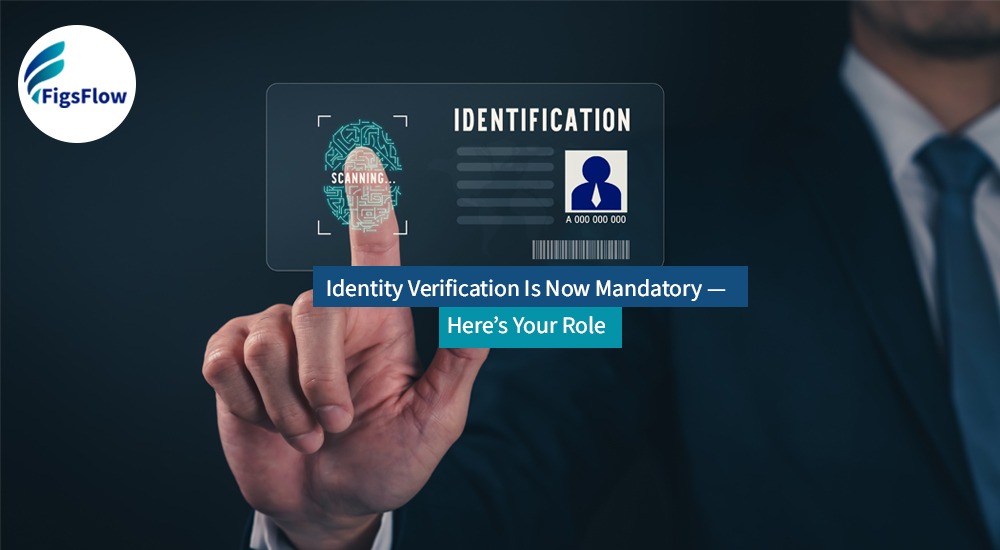Are your clients ready for what’s coming next – Companies House Identity Verification?
From autumn 2025, Companies House will introduce mandatory identity verification (IDV) for anyone involved in forming or managing a company in the UK. That includes all directors, People with Significant Control (PSCs) and agents filing on behalf of companies.
So, without ID verification, there will be no appointments and no filings.
This shift is part of a wider government initiative to enhance corporate transparency, tackle economic crime and restore public trust in UK companies.
Under this requirement, there will be two main routes for identity verification: either directly through GOV.UK or via an Authorised Corporate Service Provider (ACSP). Either way, your clients will likely need your support help to navigate the process. Here’s how you can help them prepare.
What’s Changing with Companies House Identity Verification?
The UK government is implementing one of the most significant reforms to corporate transparency in decades through the Economic Crime and Corporate Transparency Act (ECCTA). At the heart of it is a clear and uncompromising rule that every director, PSC and agent filing on behalf of company must verify their identity.
This rule applies to newly incorporated as well as existing entities making filings or changes. And if someone doesn’t verify, they won’t be allowed to act. That means they can’t make appointments, updates or submissions to Companies House.
Two Ways to Verify: GOV.UK& ACSP
Under this new requirement, the designated individuals will be able to verify their identity in two ways.
Route 1: Directly via GOV.UK
Individuals can verify their identity themselves through the government official portal GOV.UK. For this, they will need to upload a valid photo ID (like a passport or driving licence) and a selfie for facial recognition.
Once verified, Companies House will issue a unique identifier (generally referred to as a personal code) that confirms their identity for filings.
Route 2: Via an Authorised Corporate Service Provider (ACSP)
Alternatively, identity verification can be completed via an Authorised Corporate Service Provider (ACSP). ACSPs are usually accountants, company formation agents or similar professionals officially authorised to verify identities on behalf of Companies House.
The ACSP verifies the client’s identity in accordance with Companies House standards. Once completed, they submit the client’s credentials through the ACSP portal. After this, the client receives their personal code.
This second route is typically smoother and can easily be integrated into existing onboarding or filing processes.
In the case of accountants, they have two options: either become ACSPs themselves or partner with other ACSPs.
Either way, it’s important to advise clients on the most suitable path for them and guide them through the process.
What Accountants Should Be Doing Now
With the new ID verification becoming mandatory from autumn 2025, accountants need to get ahead and prepare themselves and their clients for this new requirement in advance.
Here’s what you should start doing today.
Audit Your Client Records
Review your client base, particularly directors and PSCs, and identify those who will need to verify their identity.
Educate Your Clients
Many clients, especially overseas landlords, dormant companies, overseas directors and small business owners, may not yet be aware of this new requirement. So, you may need to communicate what’s coming, what it means for them and what they need to do.
Decide Whether to Become an ACSP
Decide whether to register as an ACSP and carry out ID verification in-house or partner with a third party.
Integrate ID Verification into Your Onboarding
This will help ensure compliance with ID verification and Anti-Money Laundering (AML) requirements.
For this, you can use tools like FigsFlow. This onboarding tool had already been streamlining everything from proposals and engagement letters to service pricing for accountants, bookkeepers and tax advisers. But now, it’s also rolling out a new AML module to let you verify client identities without needing a third app or adding steps to your onboarding process.
Conclusion: Be the Accountant Clients Can Count On
The identity verification rules will significantly reshape how Companies House operates and how clients rely on their accountants. Those who act early will not only keep their clients compliant but also earn more trust and unlock new advisory opportunities.
However, those who delay might face frustrated clients, rejected filings and reputational damage.
So, be the firm clients can rely on. Register your firm as an ACSP, educate your clients on the new requirements and prepare on how to guide your clients through these upcoming changes.


